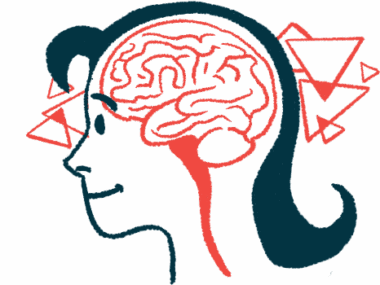Fatigue Is One of the Most Difficult Symptoms I Deal With
Written by |

Friedreich’s ataxia (FA) patients face multiple symptoms that can help confirm a diagnosis. The five most common symptoms are difficulty walking, sensory changes (such as hearing loss, involuntary eye movements, vision impairment, and speech problems), scoliosis, diabetes, and heart failure. FA patients are affected differently by these symptoms or may not experience them at all. However, the main symptom most people live with is fatigue.
Growing up, I always had a busy schedule thanks to being in three music groups (band, choir, and orchestra) from elementary school to high school. I did this while trying to be a “normal teenager” by making time for family and friends as well. During college, homework, internships, school activities, groups, and social life kept me busy. I always thought I knew what being tired and overworked was, but then I was diagnosed with FA in the middle of college at age 21, and my perspective on the matter changed entirely.
FA patients are deficient in the protein frataxin, which can cause energy deprivation. Frataxin is found in the energy-producing parts of mitochondria. Research suggests that without a normal level of frataxin, certain cells in the body (especially peripheral nerve, spinal cord, brain, and heart muscle cells) produce energy less effectively. Abnormal levels of frataxin may also lead to increased levels of iron in the mitochondria, which can result in fatigue and tiredness.
I have been living with FA clinically for eight years now. Because I have a better understanding of the disease and my diagnosis, I have learned that fatigue is my biggest battle yet. When I enter a state of pure exhaustion, I tend to slip and fall more, and my speech becomes so slurred that sometimes I am asked to repeat myself in conversation. My biggest concern is falling and hurting myself.
I recently had my annual checkup with my doctor in March, and I mentioned that my fatigue was increasing. It was becoming difficult for me to get through a full day with the energy and strength to complete tasks. He suggested a daily intake of amantadine, an antiviral medication used to prevent or treat certain influenza infections. Amantadine is also given as a supplement for people living with Parkinson’s disease and is sometimes effective in relieving fatigue for people with multiple sclerosis (MS).
When I heard that others had experienced positive results with amantadine, I was eager to inquire about the medication because I was desperate to try anything to eliminate my tiredness.
I have been taking the medication once a day for the past four months. I continue to see a positive difference in my day-to-day activities. I am able to last longer and have more energy throughout the day. My fatigue is more tolerable and I feel “like myself” again.
We’ll see what the long-term effects are, but I’ll keep you posted.
***
Friedreich’s Ataxia News is strictly a news and information website about the disease. It does not provide medical advice, diagnosis or treatment. This content is not intended to be a substitute for professional medical advice, diagnosis, or treatment. Always seek the advice of your physician or another qualified health provider with any questions you may have regarding a medical condition. Never disregard professional medical advice or delay in seeking it because of something you have read on this website.






Leave a comment
Fill in the required fields to post. Your email address will not be published.